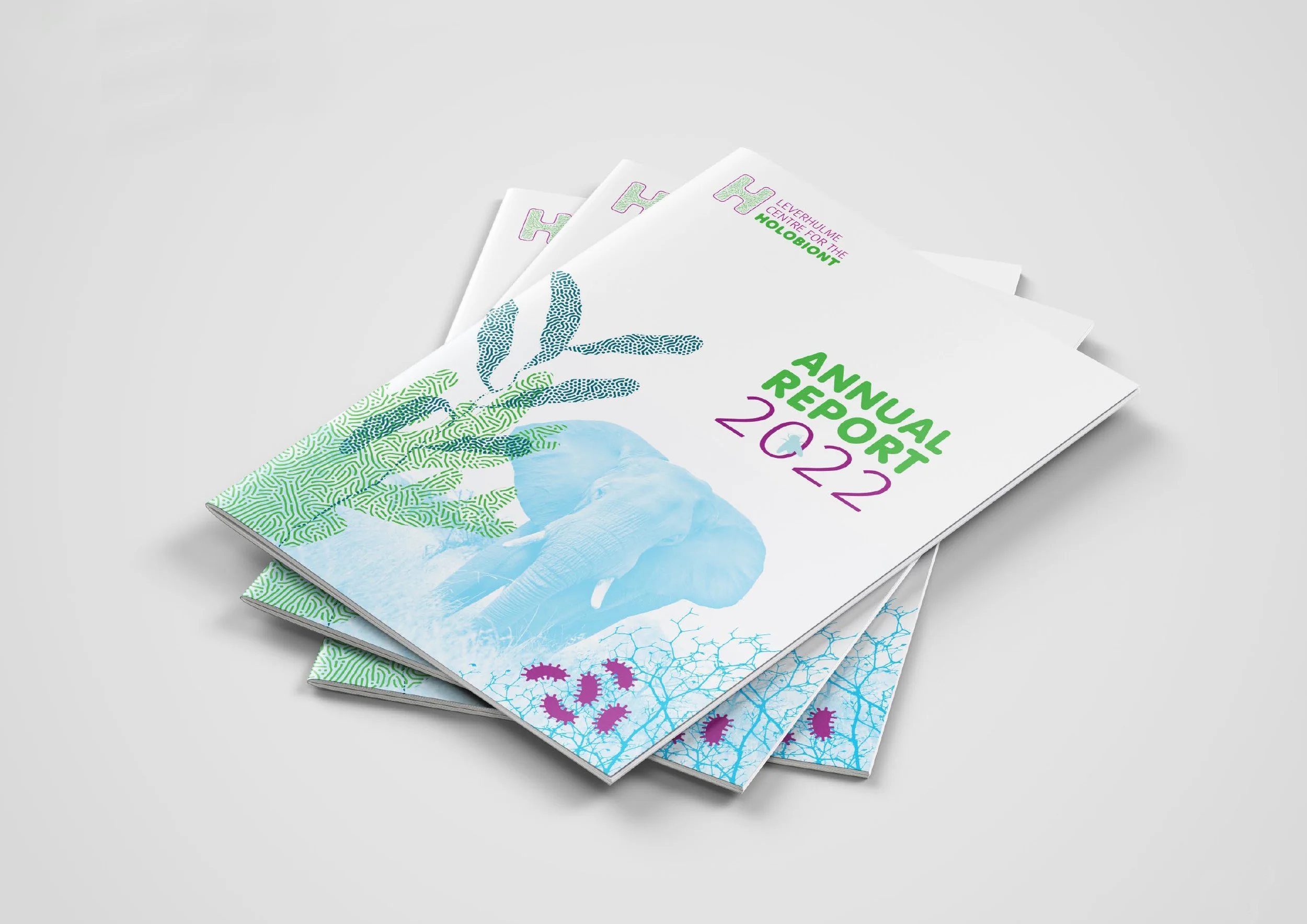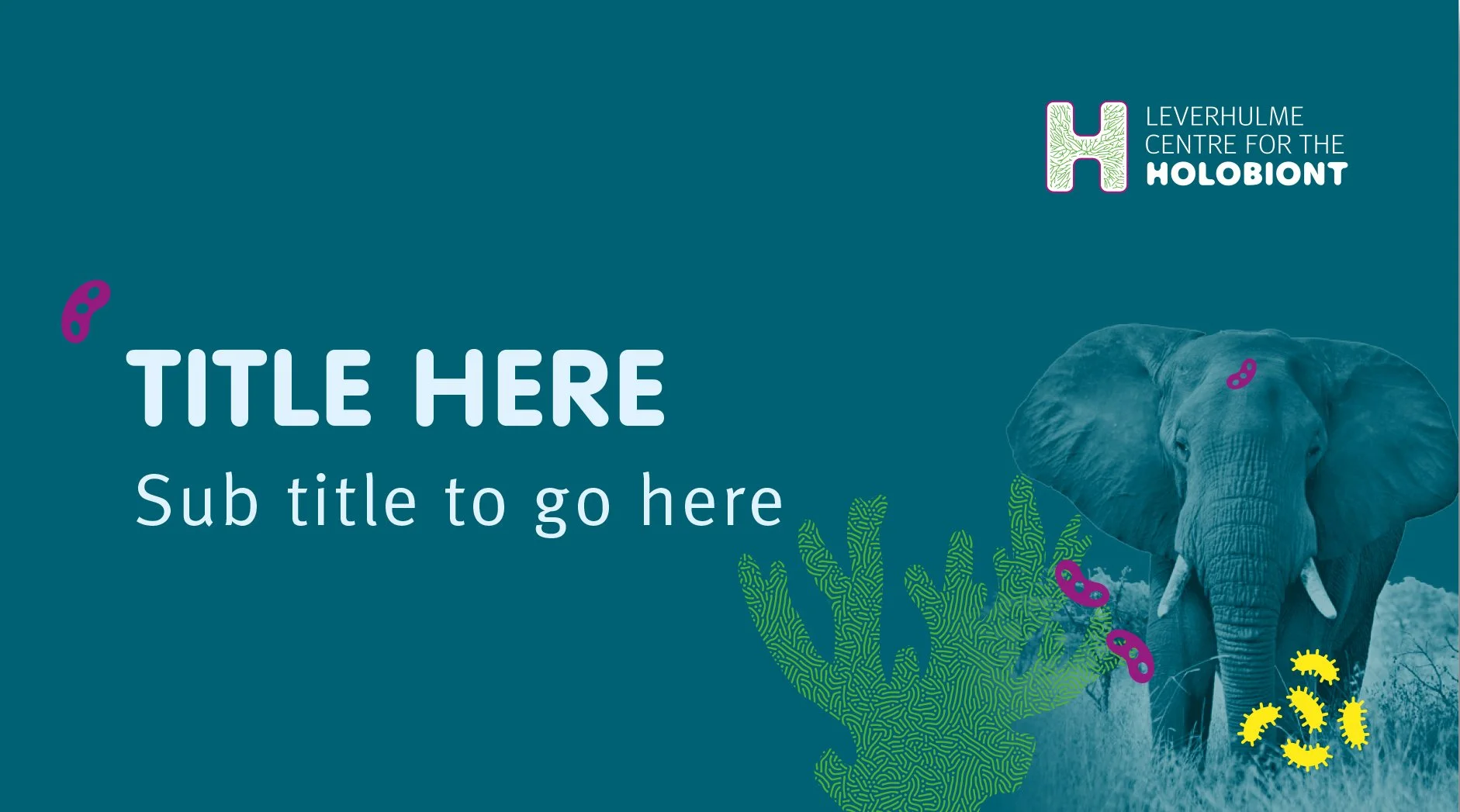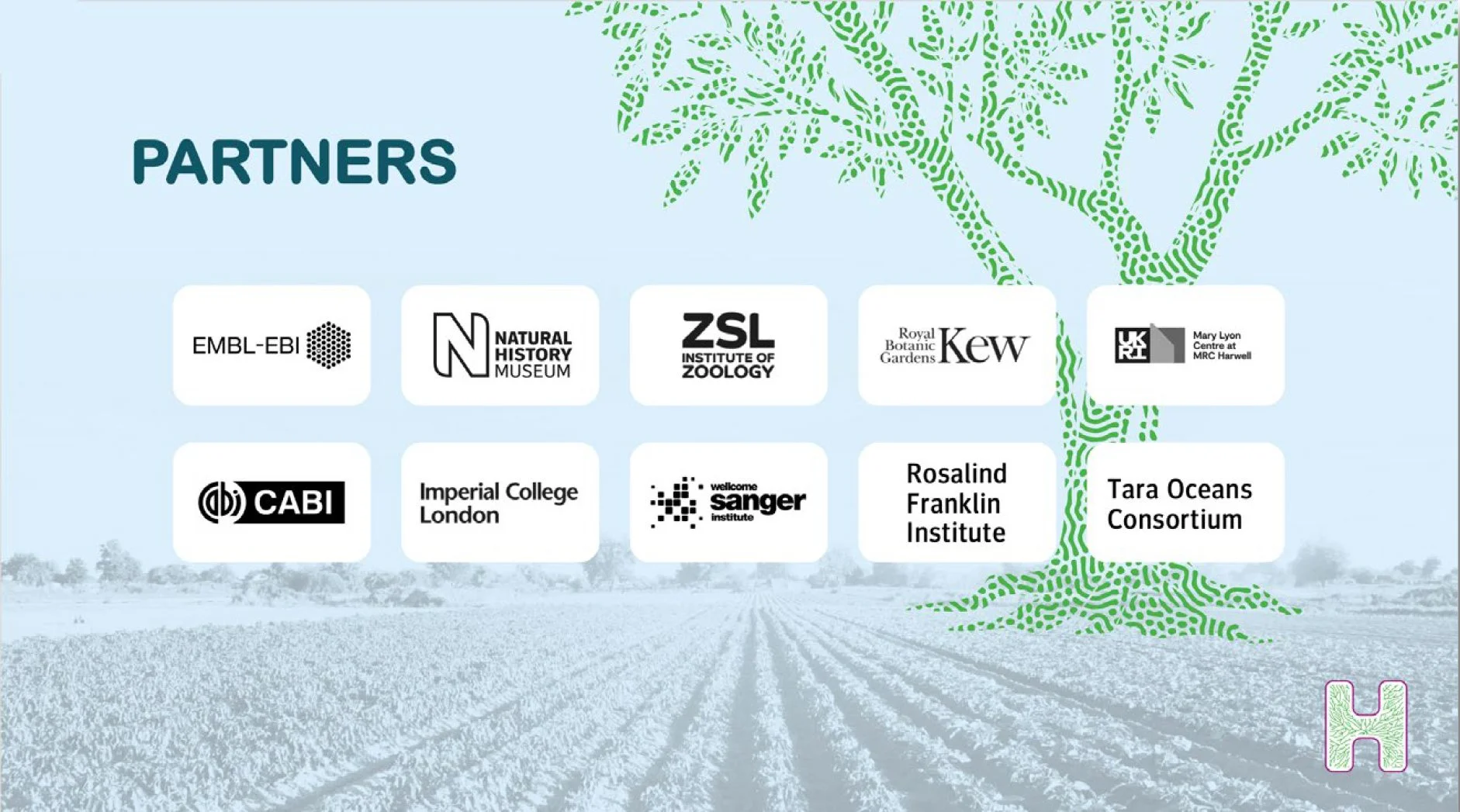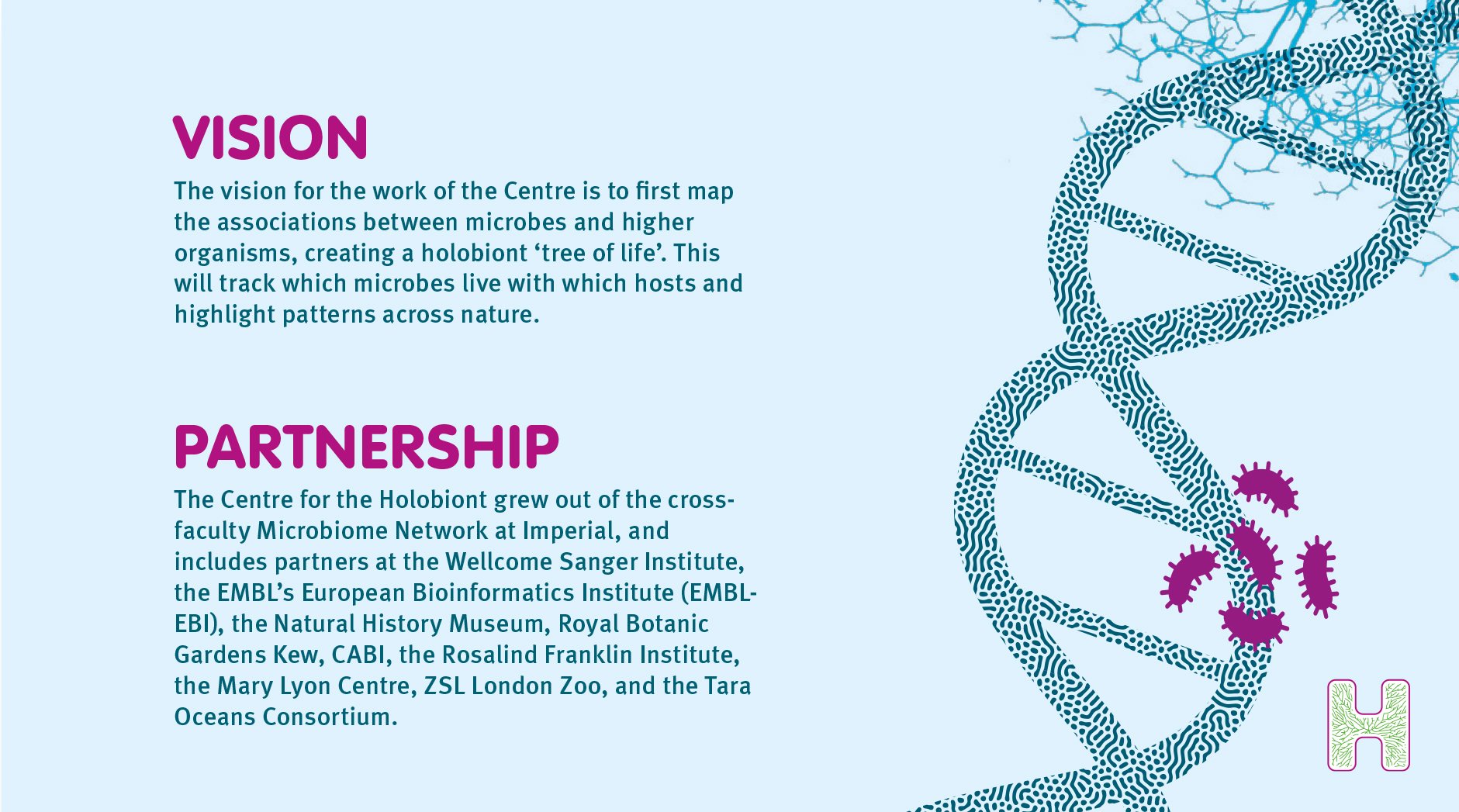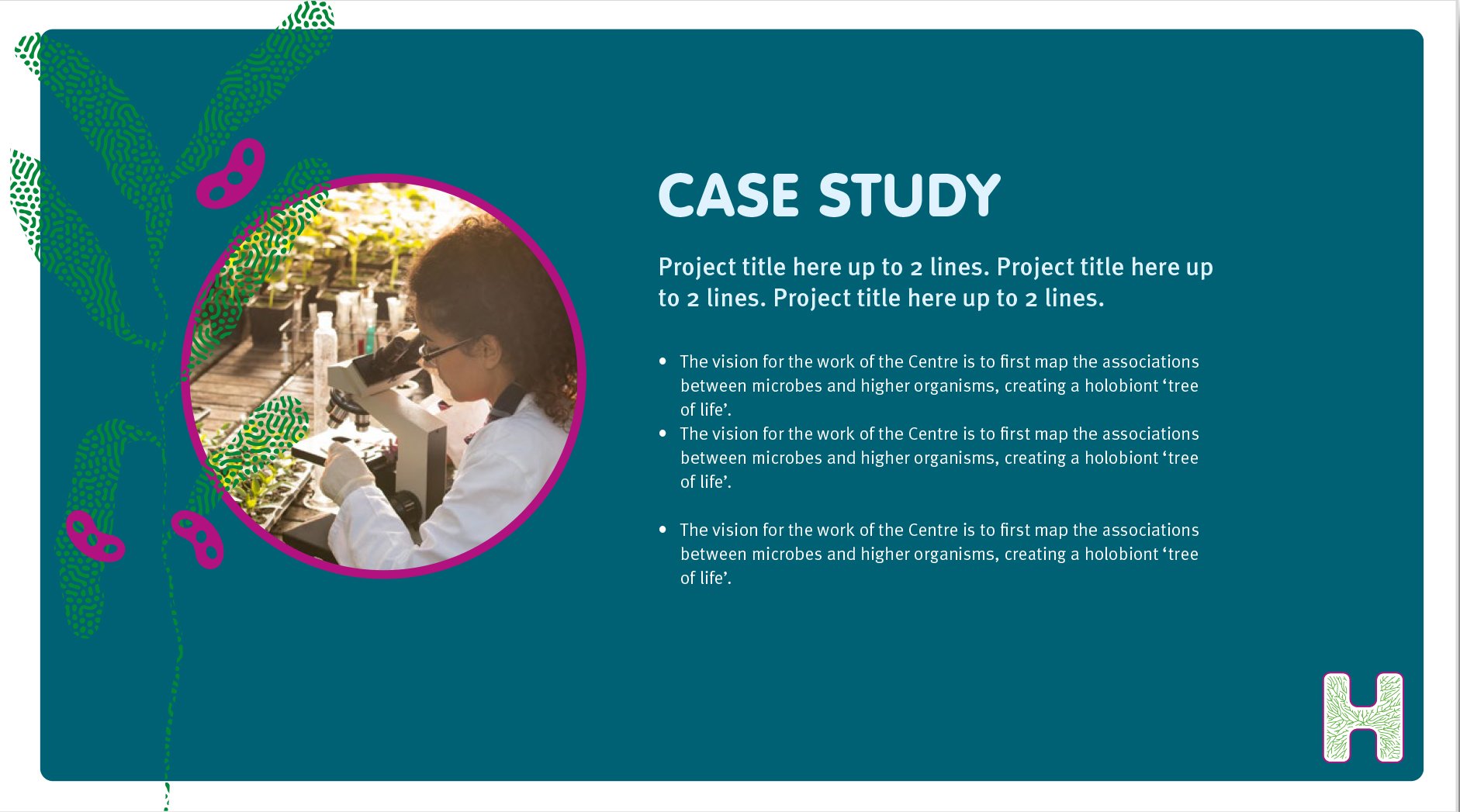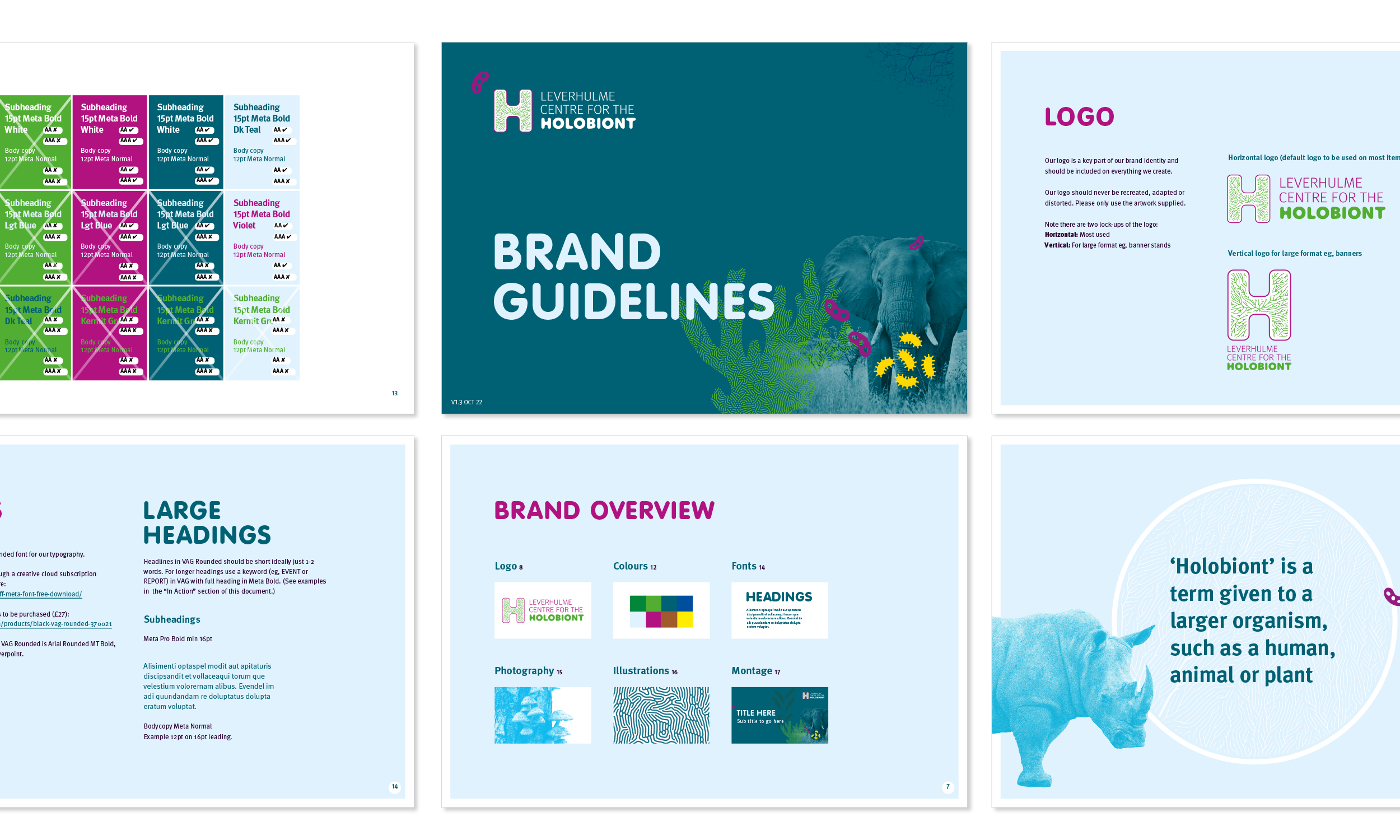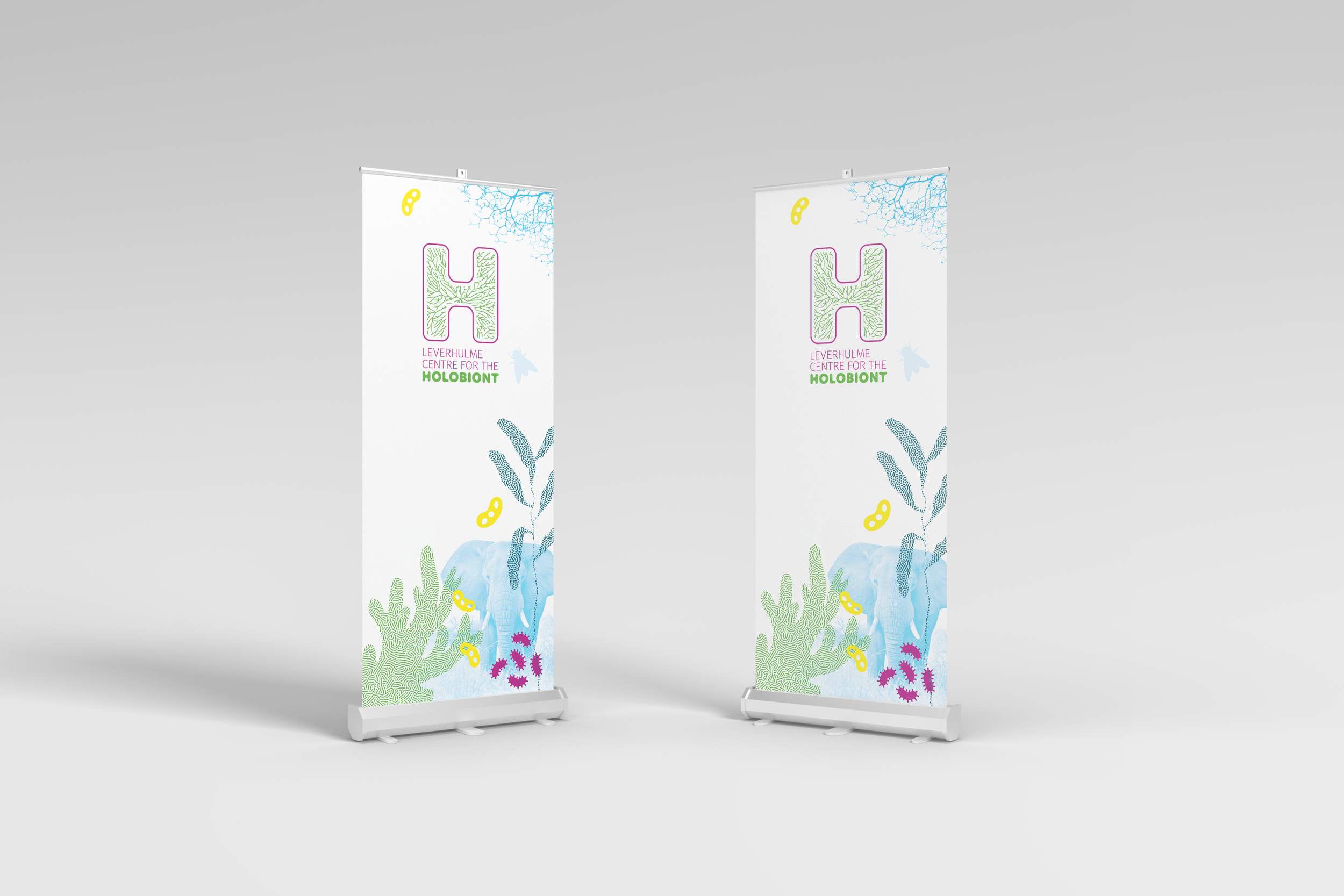Leverhulme Centre for the Holobiont
| BRANDING | LOGO | BRAND GUIDELINES | TEMPLATES |
“Claire understood the brief immediately, was great at taking on feedback from all concerned and really pulled something new and innovative out of the bag.”
Client
The Leverhulme Centre for the Holobiont aims to create a green revolution in agriculture, rescue threatened species and restore habitats. Their research focuses on holobionts – a term given to a larger organism, such as a human, animal or plant – and the relationship between the host and its microbiome. Examples of applications of their research include exploring if breeding endangered animals in captivity often fails because they are missing out on microbes from the land where they would usually live and considering how to manipulate soil to use less fertiliser and avoid pesticides in agriculture.
The vision for the work of the Centre is to first map the associations between microbes and higher organisms, creating a holobiont ‘tree of life’. This will track which microbes live with which hosts and highlight patterns across nature as well as creating a baseline against which to measure the impact of change in the future.
I had previously worked with Emily Govan when I produced branding and an exhibition for the ‘Humanities at 70’ project at Imperial College London. In her role as Communications Officer for the Department of Life Sciences, Emily asked if I would be interested in helping to brand their new Leverhulme Centre for the Holobiont.
Brief
Funded by Leverhulme, the new Centre is a collaboration across Natural Sciences, Engineering, and Medicine at Imperial College London, and partners from nine research institutes: the Wellcome Sanger Institute; the EMBL’s European Bioinformatics Institute (EMBL-EBI); the Natural History Museum; the Royal Botanic Gardens Kew; CABI; the Rosalind Franklin Institute; the Mary Lyon Centre; ZSL London Zoo and the Tara Oceans Consortium.
With so many parties involved, the branding needed to help explain the meaning of holobiont whilst looking exciting and reflecting the wide range of topics being researched under the larger umbrella. The centre needs to communicate with internal figures (primarily academics) as well as businesses, think tanks and policy makers worldwide and so required a clear visual brand.
The brief was for a logo, full brand identity (with accompanying brand guidelines for stakeholders) and website design to fit within the wider Imperial College website. The Centre also needed templates for social media and PowerPoint as well as the possibility of brochures and events materials in the future.
Creative
This project required a careful approach as although the Centre is a standalone entity, it also sits within Imperial College and Emily was keen to have the website housed on the main site. The first step was to meet with the Imperial College branding team to make sure our plans were compliant with their established branding rules. To sit within the Imperial College website, we needed to comply with certain design guidelines which resulted in me showing a preference for their fonts and colours within the design.
Once I had the parameters, I went away and created two possible design routes. I presented both to Emily and Tom Bell, the Centre’s Director, showing them new logos alongside supporting elements in designed examples including the website, digital banners and social media graphics.
The version they chose featured the idea of the holobiont displayed as a collection of mini shapes held within a host, signified by the H outline. The tree pattern speaks to the idea of mapping out the micro-level relationships between organisms across the Tree of Life.
Once I had the go ahead for a specific approach, I delivered a full set of guidelines alongside social media and PowerPoint templates and a range of graphics for the website.
Impact
The Centre now has a distinct visual identity which speaks directly to the work it is doing whilst also sitting alongside the established branding of Imperial College.
Emily and Tom are pleased with how everything looks, and the Centre has already had success with promotional materials they’ve produced featuring the branding.
“The final product is exactly what we are after - visually pleasing and reflecting accurately the work done by our Centre. We have already had considerable positive feedback from various sources.”

